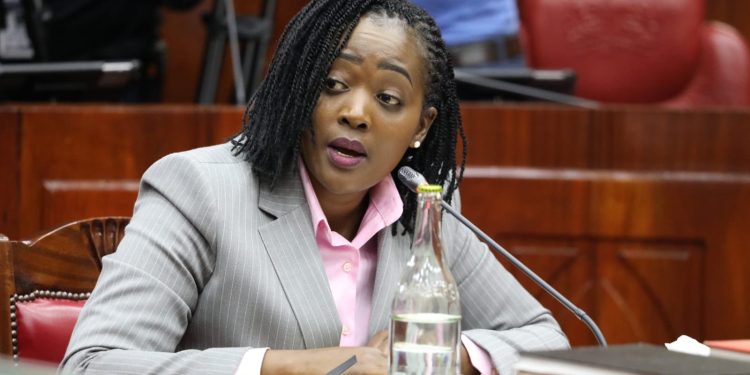The Kenyan government has been challenged to rope in private sector in building sustainable initiatives towards reducing carbon emission.
Insights from High-Level Private Sector Roundtable convened by Kenya Private Sector Alliance (KEPSA), and the United Nations Environment Program (UNEP) shows that transitioning from the current development pathway to a low-carbon, climate-resilient one will require significant investment, innovation, and, more importantly, a shift in how governments and the private sector make decisions.
“Kenya must lead Africa in progressing from policy creation, pledges and promises to increased climate action implementation, which requires more private sector investment,” noted Stephen Jackson, the UN Resident Coordinator.
“The United Nations is encouraged by the continued collaborations among all public and private sectors and with development partners, as this will lead to developing and implementing more sustainable initiatives and drive systemic change,”
The rallying theme for the high-level CEOs roundtable was “Building business climate action for resilience and green growth”.
Speaking during the roundtable, Soipan Tuya, Cabinet Secretary for Environment Climate Change and Forestry noted the need to maximize the private sector contribution to tackling climate change, with clear and appropriate incentives that are being created.
“As a Country, we are already walking the talk, we have amended our Climate Change Act and provided a carbon Market regulatory framework, one of its kind in Africa, that provides for a transparent space to invest in high-quality Carbon Market Projects,” remarked Hon. Tuya.
Kenya’s private sector companies increasingly recognize the importance of reducing greenhouse gas emissions to mitigate climate change. Investing in climate change, presents significant opportunities, for adaptation and mitigation including green manufacturing, climate smart agriculture, ecotourism, adopting a circular economy among others.
Green industries and business, foster innovation, create new business models, and generate economic value through eco-design and ecolabelling, lifecycle assessment, extended producer responsibility schemes, investment in material recovery, waste processing and residual waste management.
“It is encouraging to see private sector members enhance their commitment to driving investments in green growth and climate change. We want to emphasize our solid support for the government in co-hosting the upcoming Africa Climate Summit and leveraging complementarity and synergy to unlock more investments across all sectors,” said Carole Kariuki, KEPSA CEO.
Kariuki also lauded the private sector’s commitment to disclosing their environmental impact to promote transparency and accountability in climate action through environmental social governance (ESG) and sustainability reporting.
This, she emphasized, “will help stakeholders assess progress, identify areas for improvement, and hold companies accountable for their climate commitments.
The private sector encompasses formal and informal actors, with the latter employing up to 80% per centof the continent, including the youth.
The Africa Climate Summit will bring together heads of state and governments, business leaders, policymakers, scientists, civil society organizations, and other stakeholders to discuss and advance climate action for Africa. It is also anticipated that participants will discuss the latest scientific findings on climate change, share experiences and best practices on climate action, and negotiate agreements and commitments to reduce greenhouse gas emissions and adapt to the impacts of climate change. Moreover, the summit will provide an essential platform for advancing green growth and promoting cooperation among countries and stakeholders in the region, helping to raise awareness of the urgent need to address climate change and the opportunities for transitioning to a more sustainable, low-carbon future.
kenya to have clean energy by 2030




